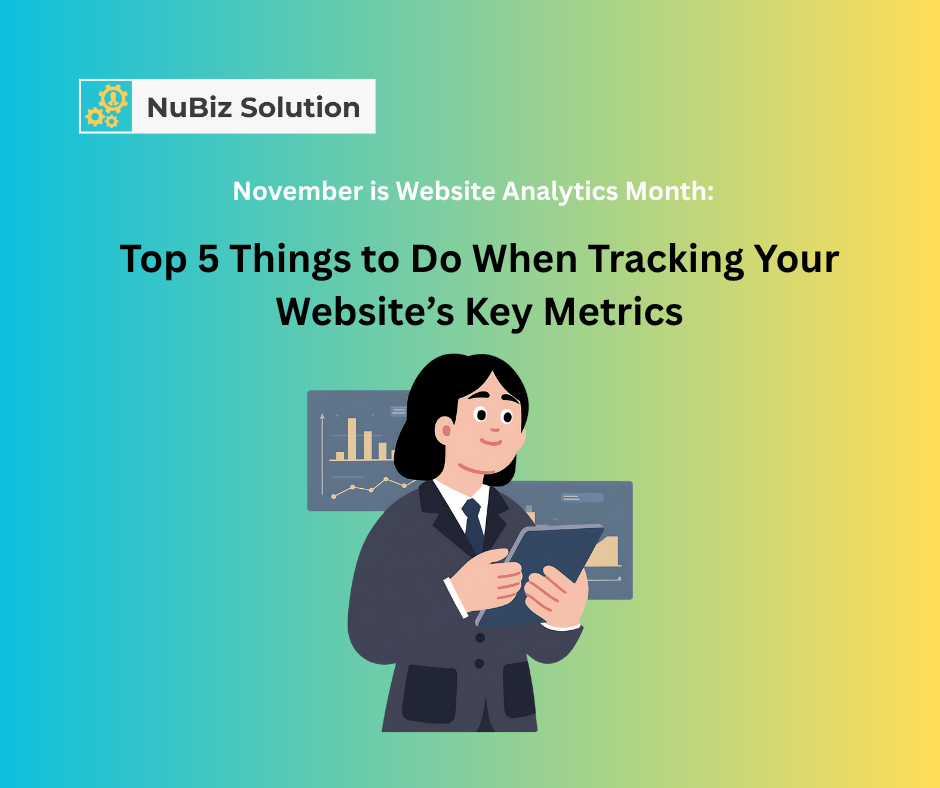Top 5 Things to Do When Tracking Your Website’s Key Metrics
- Adnan Siddiqui
- Nov 20, 2025
- 2 min read
Tracking your website’s key metrics is one of the smartest things you can do to understand what’s working—and what needs improvement. Whether you’re running a business website, a personal brand, or an online store, data gives you the power to make informed decisions.
But with so many analytics tools and numbers available, where do you even start?
Don’t worry—here are the Top 5 most important things you should focus on when monitoring your website’s performance.
1. Monitor Your Website Traffic (Where Your Visitors Come From)
One of the first things to track is your traffic—how many people visit your site and where they come from.
Key things to check:
Total visitors & pageviews
Traffic sources (Social Media, Organic Search, Direct, Referral, Paid Ads)
New vs. returning visitors
Why it matters:If you understand which platforms bring the most visitors, you can double down on those channels and stop wasting time on low-performing ones.
2. Track User Behavior on Your Website
Traffic is great, but what visitors do on your website is even more important.
Pay attention to:
Bounce rate – Are people leaving right away?
Time on page – Are they reading your content?
Pages per session – Do they explore your site?
Top performing pages – What content are they loving?
Why it matters:User behavior tells you whether your website is useful, engaging, and easy to navigate. If people leave quickly, something needs fixing—usually content, layout, or speed.
3. Watch Your Conversion Metrics Closely
Conversions = the actions you want your visitors to take.
This may include:
Filling out a contact form
Subscribing to a newsletter
Booking a call
Buying a product
Downloading something
Track:
Conversion rate
Cost per conversion (if running ads)
Which pages convert best
Why it matters:Your website isn’t just a digital brochure. It should actively generate leads, sales, and results. Tracking conversions shows you where your revenue is truly coming from.
4. Keep an Eye on Your Website’s SEO Performance
SEO metrics help you understand how visible your website is in search results.
Track:
Keyword rankings
Organic traffic
Click-through rate (CTR) from Google
Backlinks
Page loading speed
Why it matters:Better rankings = more free traffic = more customers.SEO performance is one of the best indicators of long-term growth.
Tools that help:
Google Search Console
SEMrush
Ahrefs
Ubersuggest
5. Track Your Website Performance and Technical Health
Even the most beautiful website fails if it loads slowly or breaks often.
Monitor:
Page speed
Mobile responsiveness
Broken links
Server downtime
Core Web Vitals
Why it matters:A slow or buggy website will drop your search rankings and frustrate your visitors. A fast, smooth site keeps users engaged and improves conversion rates.
Final Thoughts
Tracking your website’s key metrics isn’t just about numbers—it’s about understanding your audience and making smarter decisions.
When you consistently monitor:
Traffic
User behavior
Conversions
SEO performance
Technical health
…you gain complete control over your website’s growth.
Data tells a story—and once you know how to read it, your website becomes a powerful tool for attracting customers and scaling your business.






Comments